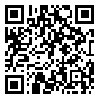BibTeX | RIS | EndNote | Medlars | ProCite | Reference Manager | RefWorks
Send citation to:
URL: http://jdisabilstud.org/article-1-1532-en.html
2- Department of Psychology, Roudehen Branch, Islamic Azad University, Roudehen, Iran
Abstract
Background & Objectives: Research evidence suggests that mothers of physically disabled children suffer more from social and psychological problems and are less likely to benefit from proper health and well–being. An issue more frequently encountered by the mothers of physically–disabled children is the feelings of embarrassment and shame compared to their counterparts with healthy children. In addition, they experience high anxiety levels. Acceptance and Commitment Therapy (ACT) is a non–medical treatment method for reducing stress and psychotherapy. Instead of changing cognition, this treatment attempts to increase the psychological relationship of individuals with their thoughts and feelings. The present study aimed to determine the effectiveness of ACT on the social anxiety and internal shame of mothers with physically–disabled children.
Methods: This study was quasi–experimental with a pretest–posttest design and a control group. The study's statistical population comprised all mothers with physically–disabled children living in Tehran City, Iran, in 2018. Of them, 36 mothers were selected by convenience sampling technique and randomly assigned into the experimental and control groups (each group with 18 persons). The research method followed the necessary coordination with the authorities of the clinic and the Welfare Organization of Tehran City, Iran. The inclusion criteria were as follows: having a physically–disabled child, willingness to participate in therapeutic intervention sessions, and having at least a diploma. The exclusion criteria included having more than one disabled child and taking pills related to mental illnesses. The data collection instruments were Internalized Shame Scale (Cook, 1993) and Social Anxiety Scale (Conner et al., 2000). ACT was performed in 8 sessions of 90 minutes in the experimental group. However, no intervention was applied to the control group. Immediately after the completion of the experimental intervention, the intervention was provided to the control group. Finally, an analysis of covariance was performed to assess the presented therapy's effectiveness in SPSS version 23. The data analysis was conducted at a significance level of 0.05.
Results: The mean±SD internal shame score of the experimental group was 49.23±9.74, which decreased to 38.77±8.54 at the posttest. Furthermore, the mean±SD value of social anxiety decreased from 42.90±9.56 at the pretest to 31.12±8.75 at the posttest. Moreover, ANCOVA data revealed that after eliminating the effect of the pretest, the mean scores of the posttest of internal shame (p<0.001) and social anxiety (p<0.001) between the two groups were statistically significant.
Conclusion: According to the findings, ACT can be used for mothers of children with physical disability and effectively reduces mothers' internal shame and social anxiety.
| Rights and permissions | |
 |
This work is licensed under a Creative Commons Attribution-NonCommercial 4.0 International License. |





